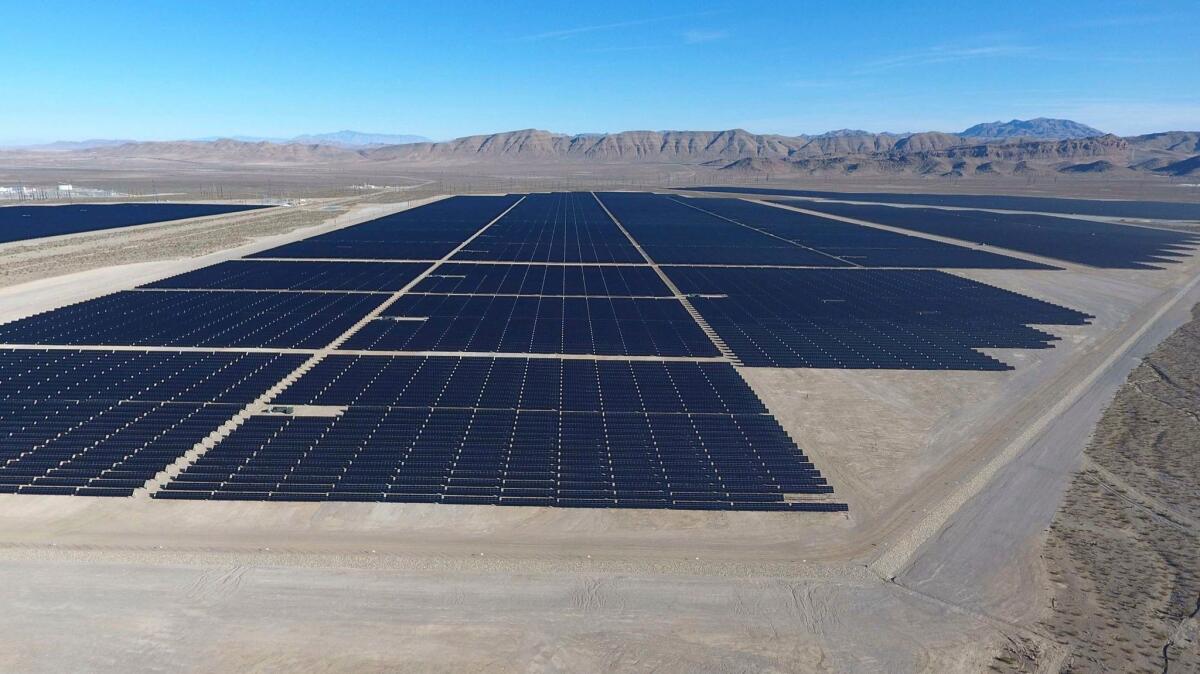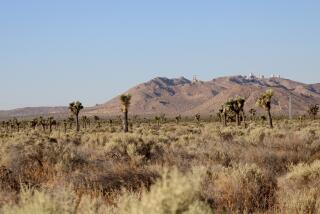Buffett-backed giant solar project near Las Vegas wins Trump’s blessing

The Trump administration on Monday approved the largest solar installation in U.S. history, giving its blessing to a Berkshire Hathaway Inc. subsidiary’s 690-megawatt project just north of Las Vegas.
When finished, NV Energy’s estimated $1-billion Gemini Solar Project is set to become the eighth-largest solar power facility in the world, spanning some 7,100 acres of federal land and generating enough electricity to power 260,000 homes in the region.
Interior Secretary David Bernhardt called approval of the project “one more step forward as the president is moving forward and transitioning” to reopen the economy. “It has a significant potential for construction jobs” during a real “tough time for folks,” Bernhardt said in an interview Monday.
The Interior Department has estimated that as many as 900 workers could be involved at any given time during construction. Developers aim to build the project in two phases over roughly 28 months, with the first portion coming online in early 2021 and final facility completion as early as 2022.
In addition to generating electricity from photovoltaic solar panels, the project, about 30 miles northeast of Las Vegas, also is slated to include a large, 380-megawatt battery storage system capable of holding solar power generated during the day for deployment in early evenings, when demand peaks.
Although it will generate electricity for NV Energy companies, Gemini is set to be built by Arevia Power. NV Energy and Quinbrook Infrastructure Partners signed a power purchase agreement approved by Nevada regulators in December.

Warren Buffett is the chairman and CEO of Berkshire Hathaway, the parent company of NV Energy.
The Bureau of Land Management’s approval comes despite President Trump’s criticism of renewable energy, including disparaging solar power as “very, very expensive” last spring. Even so, his administration has moved methodically to advance several solar projects on federal lands, as state clean energy targets propel a new wave of renewable development in the sun-drenched southwest U.S. California has committed to zero-emission electricity by 2045, and Nevada is seeking to generate half of its power from renewable sources by 2030.
The Interior Department said the project is slated to generate more than $3 million in annual revenue for the U.S. Treasury.
But some scientists have warned that disruptions during Gemini’s construction could imperil the Mojave desert tortoise, a reptile that is protected as a “threatened” animal under the Endangered Species Act. Some 200,000 of the tortoises remain in the wild.
Concerns also have been raised about visual impacts to a nearby historic site, including an old railroad camp and trade routes.
More to Read
Inside the business of entertainment
The Wide Shot brings you news, analysis and insights on everything from streaming wars to production — and what it all means for the future.
You may occasionally receive promotional content from the Los Angeles Times.










